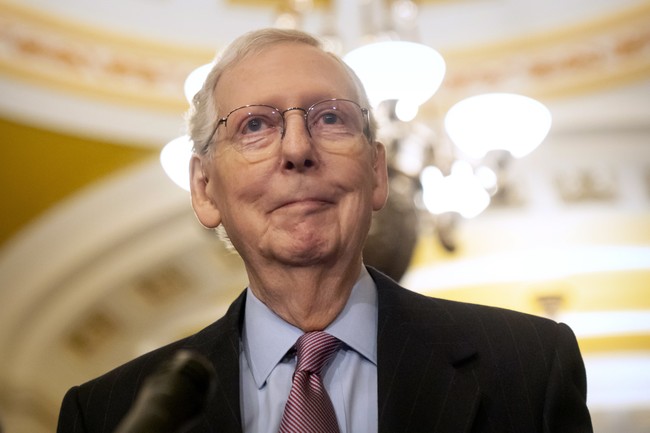US Bishops Challenge Refugee Fund Cuts
After a controversial decision by the Trump administration to halt funding, US bishops take legal action, highlighting implications for refugees and questioning the administration's motives.
Published February 20, 2025 - 00:02am

Image recovered from washingtonexaminer.com
The U.S. Conference of Catholic Bishops (USCCB) has filed a lawsuit against the Trump administration following the abrupt suspension of funding for refugee assistance programs. The move has plunged the USCCB into financial distress, threatening vital support for thousands of refugees within the U.S. and highlighting a contentious debate over immigration policy.
This legal battle, recently brought to the U.S. District Court in Washington D.C., has raised serious questions about the administration's rationale behind halting refugee funding, which the bishops argue is essential for maintaining their refugee resettlement operations. This lawsuit shines a spotlight on the broader discontent regarding changes in U.S. immigration policy under President Trump's leadership.
Tensions between the administration and religious organizations have been building since President Trump's earlier executive orders, which drastically reduced refugee admissions and increased border militarization. The recent cut in funds exacerbates an already fraught relationship, bringing the issue to the courts. The administration claims that the suspension is part of a broader review of foreign aid programs. However, the bishops argue that these funds are allocated for domestic aid, advocating that cutting them destabilizes programs designed to help refugees integrate into American society.
The financial implications are severe. The USCCB reports it now faces unpaid reimbursements totaling $13 million, while also struggling to meet obligations to its subrecipients. Archbishop Timothy Broglio has emphasized that without these funds, the ability to assist refugees who have already been granted legal status in the U.S. hangs in jeopardy.
The controversy fuels ongoing debates about the very nature and intentions of refugee assistance programs. Vice President JD Vance has been vocal in his criticism, suggesting that the bishops might be prioritizing financial gain over humanitarian efforts. Despite such allegations, the bishops vehemently deny profiting from government funds, asserting that their expenditures exceed federal contributions.
The broader implications of this lawsuit are significant, as the USCCB has been at the forefront of refugee resettlement efforts for decades, reflecting a long-standing commitment rooted in religious teachings. Their partnership with the government, which dates back to World War II, underscores a historical expectation that charitable organizations serve as a backbone for humanitarian missions.
The USCCB's lawsuit also underscores a broader concern within the Catholic Church about the implementation of U.S. immigration policies. Pope Francis has critiqued such policies, arguing they run counter to humanitarian principles. The suspension not only impacts the logistical capacity of resettling refugees but also challenges the missionary ethos of welcoming strangers and providing sanctuary to those fleeing persecution.
A resolution to this legal struggle could set significant precedents for the funding mechanisms supporting refugee assistance and raise critical questions about the separation of powers concerning executive decisions and congressional appropriations.
As the court proceedings continue, the fate of thousands of refugees hangs in balance, amplifying the voices calling for a reassessment of the administration's stance on refugee and immigration issues in the U.S.







